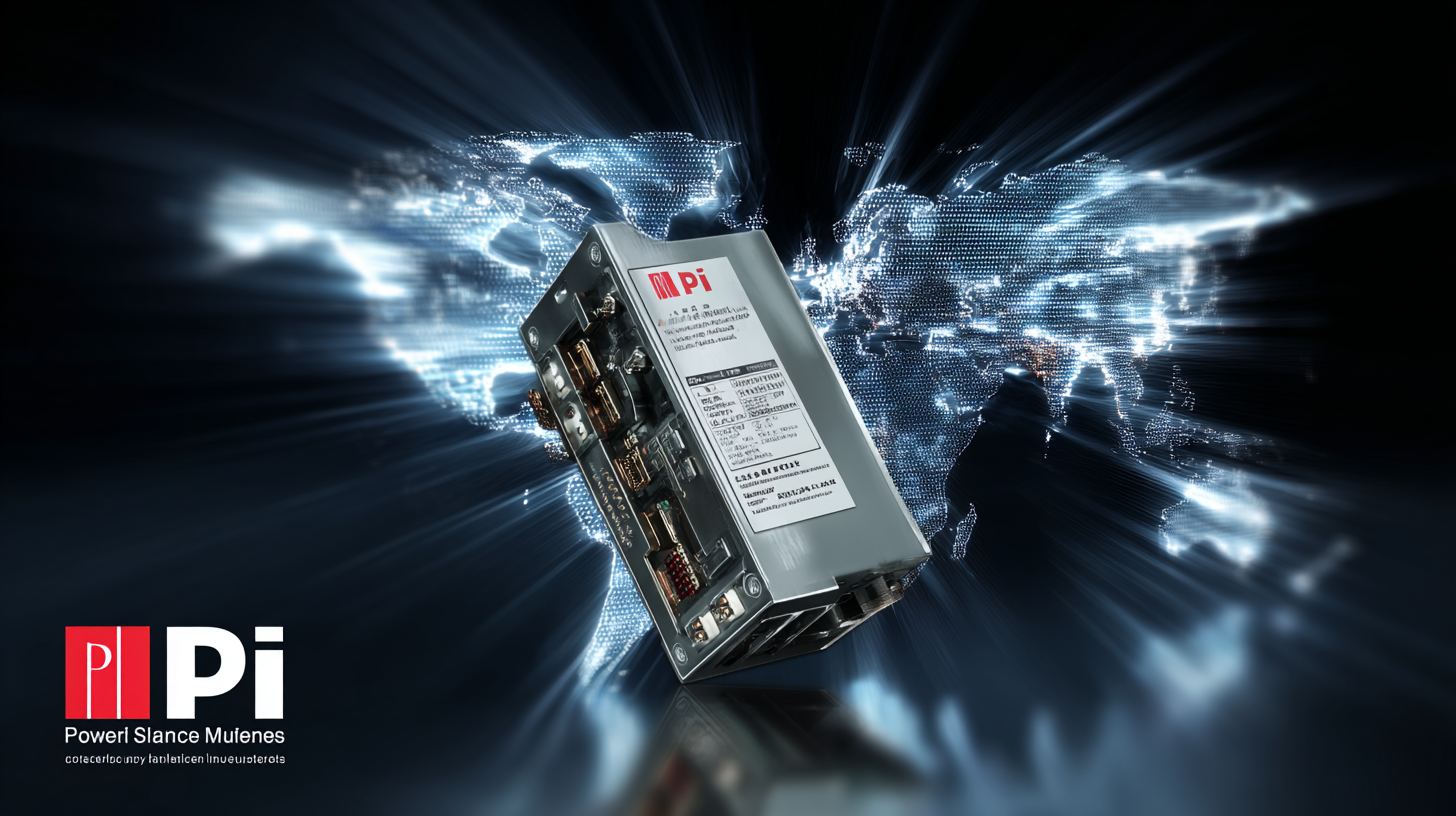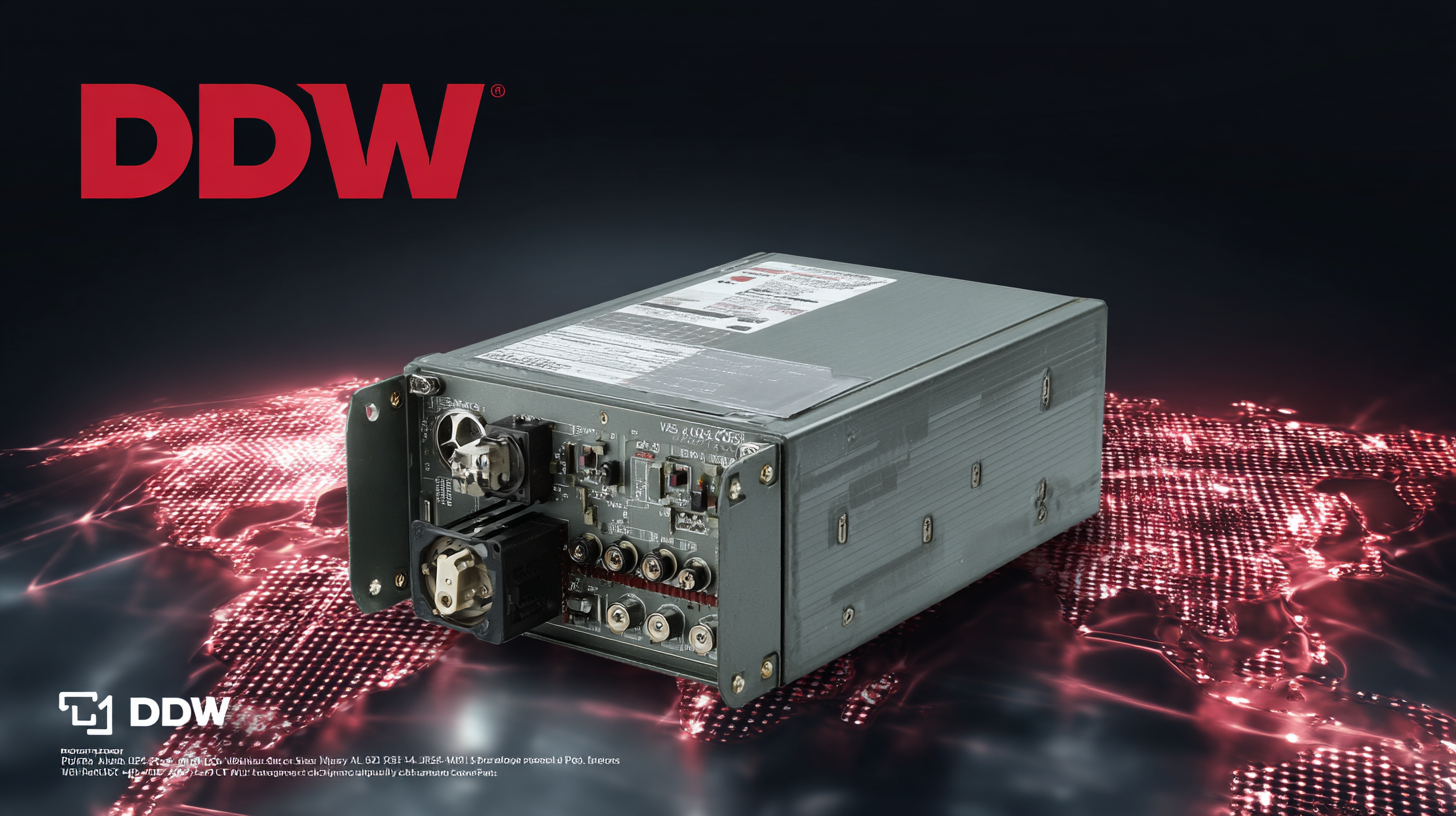Leave Your Message
- Phone
- E-mail
- Whatsapp


In today's rapidly evolving global market, the demand for reliable and efficient power supplies is more critical than ever. As industries across the world expand their technological capabilities, the role of power supply manufacturers becomes increasingly significant. This guide aims to explore leading global manufacturers that specialize in the production of power supplies for international markets. By examining their innovative technologies, quality standards, and market strategies, we will provide valuable insights into how these manufacturers are meeting the diverse energy needs of various sectors. Whether you are an industry professional seeking to collaborate or a business looking to source high-quality power supplies, understanding the landscape of power supply manufacturers is essential for making informed decisions in an increasingly competitive environment.

When examining high-quality power supplies for international markets, it is essential to identify key features that set top manufacturers apart. Firstly, reliability is paramount; power supplies must consistently deliver stable voltage and current under varying conditions. This reliability ensures that end devices function properly, reducing the risk of damage and downtime. Manufacturers should prioritize rigorous testing standards and certifications to guarantee their products meet global safety and performance benchmarks.
**Tip:** Always look for power supplies with reviews or testimonials highlighting their reliability and performance in real-world applications. This can provide insights into their quality from the perspective of other users.
Another crucial aspect is energy efficiency. As global markets increasingly prioritize sustainable practices, power supplies that minimize energy consumption and heat generation will stand out. Efficiency ratings such as 80 PLUS certification can indicate a power supply's ability to convert power effectively, leading to lower operational costs and a reduced carbon footprint.
**Tip:** Check for innovative designs that incorporate advanced technologies like power factor correction (PFC) and synchronous rectification, which enhance efficiency and durability.
In 2025, navigating the complexities of export regulations is crucial for power supply manufacturers looking to penetrate international markets. With recent updates to export controls across various countries, including China’s new regulations on dual-use items, businesses must enhance their compliance strategies to safeguard their operations. These measures not only reflect heightened national security concerns but also align manufacturers with international standards that govern the export of technology and components.
Manufacturers in India and other nations face additional challenges as they align their export practices with broader foreign policy objectives. For instance, India’s manufacturing sector must ensure that its export initiatives are not only competitive but also strategically aligned with global political dynamics. Similarly, companies in the Nordics are navigating complex NATO procurement processes, which demand meticulous attention to legal and regulatory frameworks, including stringent export controls. As the landscape evolves, understanding and adapting to these regulations will be essential for manufacturers aiming to thrive in the competitive global marketplace.
Effective marketing strategies are crucial for leading global manufacturers of power supplies aiming to penetrate international markets. One key approach is understanding the unique requirements and regulations of each target market. By conducting thorough research on local standards and consumer preferences, manufacturers can tailor their products and marketing messages, ensuring compliance and resonance with local customers. This localized strategy not only increases brand credibility but also facilitates smoother market entry.
Another vital strategy involves leveraging digital marketing channels to reach a broader audience. Utilizing SEO-optimized content, social media platforms, and targeted online advertising can enhance visibility and generate leads from diverse geographic regions. Additionally, participating in international trade shows and industry conferences allows manufacturers to showcase their products directly to potential clients, fostering relationships and expanding their network. Engaging with local distributors and partners can also amplify efforts, as these entities possess valuable market insights and established connections that can drive sales. By combining localized strategies with robust digital marketing efforts, manufacturers of power supplies can effectively market their products to international clients, achieving sustainable growth in the global marketplace.
In the competitive landscape of the power supply industry, establishing strong partnerships with global distributors is crucial for success. Effective collaboration not only enhances market reach but also strengthens the resilience of supply chains. By fostering these relationships, manufacturers can leverage local market insights, which are essential for tailoring products that meet specific regional demands.

Tip: When selecting distributors, prioritize those with a proven track record in the power supply sector. Assess their knowledge of both local regulations and customer preferences to ensure they can effectively navigate the market.
Moreover, it's important to maintain open channels of communication with your distributors. Regular updates on product development and market trends will enable them to effectively promote your offerings. Building trust through transparency can significantly enhance your partnership.
Tip: Consider implementing joint training programs that empower distributors with comprehensive product knowledge. This investment not only enhances distributor confidence but also equips them to provide superior customer service, ultimately driving sales growth.
Innovative technologies are at the forefront of shaping the future of power supply manufacturing, particularly for export to international markets. As global manufacturers navigate the complexities of international trade, they are increasingly focused on integrating cutting-edge developments in their production processes. Advanced materials and smart manufacturing techniques are being adopted to enhance efficiency and reliability in power supplies, meeting the growing demand for sustainable energy solutions and intelligent systems.

Moreover, geopolitical factors significantly influence innovation capacities across the globe. For instance, China's recent revisions to its export control catalog for battery technologies highlight the strategic moves countries are making to protect their technological advancements while fostering in-house capabilities. The emphasis on self-sufficiency in sectors such as semiconductors and biopharmaceuticals demonstrates how nations prioritize innovation to bolster their competitive edge. As global manufacturing landscapes shift, countries that effectively leverage technology and innovate will play a crucial role in the future of international trade and supply chains, reshaping the industry for decades to come.
